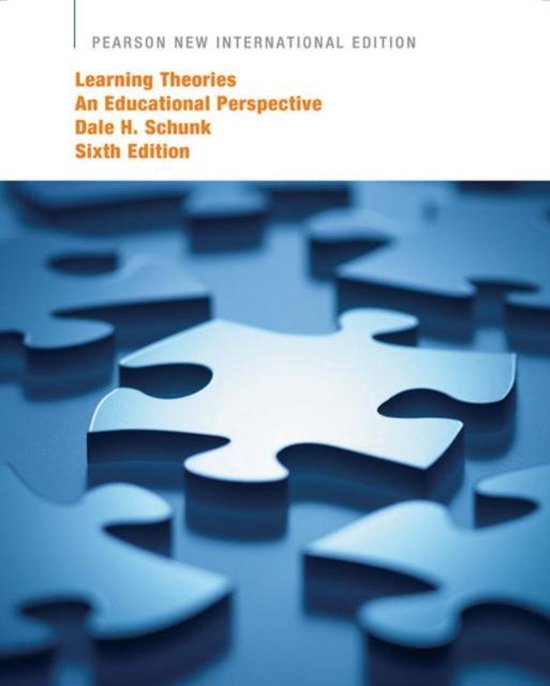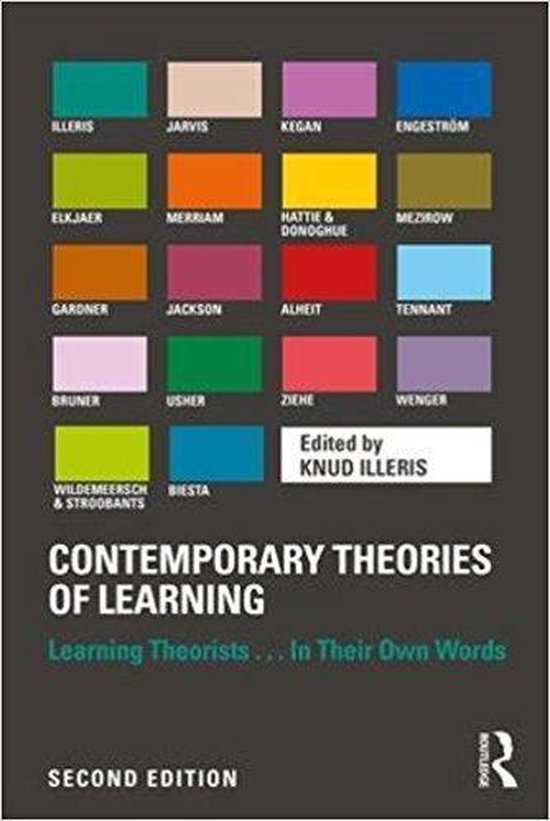
Learning Theories
An essential resource for understanding the main principles, concepts, and research findings of key theories of learning–especially as they relate to education–this proven text blends theory, research, and applications throughout, providing readers with a coherent and unified perspective on learning in educational settings.
Key features of the text include:
- Vignettes at the start of each chapter illustrating some of the principles discussed in the chapter, examples and applications throughout the chapters, and separate sections on instructional applications at the end of each chapter.
- A new chapter on Self-Regulation (Chapter 9).
- Core chapters on the neuroscience of learning (Chapter 2), constructivism (Chapter 6), cognitive learning processes (Chapter 7), motivation (Chapter 8), and development (Chapter 10) all related to teaching and learning.
- Updated sections on learning from technology and electronic media and how these advancements effectively promote learning in students (Chapters 7 & 10)
- Detailed content-area learning and models of instruction information form coherence and connection between teaching and learning in different content areas, learning principles, and processes (Chapters 2-10).
- Over 140 new references on the latest theoretical ideas, research findings, and applications in the field.
Written to inform students of the main principles, concepts, and research findings of key theories of learning–especially as they relate to education–and to provide applications of principles and concepts in settings where teaching and learning occur, this revised text blends theory, research, and applications throughout, providing its readers with a coherent and unified perspective on learning in educational settings. The primary emphasis is placed on cognitive theories that stress learners’ constructions of beliefs, skills, strategies, and knowledge, but behavioral theories are also discussed in detail. Chapters have numerous applications of learning principles to applied settings including vignettes at the start of each chapter illustrating some of the principles discussed in the chapter, examples and applications throughout the chapters, and separate sections on instructional applications at the end of each chapter.
Key features of this revised text include: a new chapter on Self-Regulation (Chapter 9); core chapters on the neuroscience of learning (Chapter 2), constructivism (Chapter 6), cognitive learning processes (Chapter 7), motivation (Chapter 8), and development (Chapter 10) all related to teaching and learning; updated sections on learning from technology and electronic media and how these advancements effectively promote learning in students (Chapters 7 & 10); detailed information on content-area learning and models of instruction to form coherence and connection between teaching and learning in different content areas, learning principles, and processes (Chapters 2-10); and over 140 new references on the latest theoretical ideas, research findings, and applications in the field. An essential resource for understanding key learning theoretical principles, concepts, and research findings–especially as they relate to education–this proven text blends theory, research, and applications throughout, providing its readers with a coherent and unified perspective on learning in educational settings.
| Auteur | | Schunk, Dale |
| Taal | | Nederlands |
| Type | | Paperback |
| Categorie | | Onderwijs & Didactiek |





